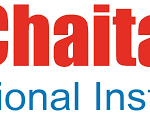PRIMARY TEACHERS
Full TimeBookmark Details
As a primary school teacher, you’ll develop schemes of work and lesson plans in line with curriculum objectives. You’ll facilitate learning by establishing a relationship with pupils, keeping your learning resources organised and creating a positive learning environment in the classroom.
Your role is to develop and foster the appropriate skills and social abilities to enable the optimum development of children, according to age, ability and aptitude.
You’ll assess and record progress and prepare pupils for national tests. You’ll link pupils’ knowledge to earlier learning and develop ways to encourage it further, challenging and inspiring pupils to help them deepen their knowledge and understanding.
Age ranges
Primary schools in England (following the national curriculum) are usually divided into:
Foundation Stage – nursery and reception (ages three to five)
Key Stage 1 – years one and two (ages five to seven)
Key Stage 2 – years three to six (ages 7 to 11).
A new curriculum and assessment framework is being rolled out in schools across Wales. This means that the curriculum will no longer be organised into key stages. The principles of Foundation Learning (ages 3 to 7) will remain, however, and become part of one seamless curriculum for pupils aged 3 to 16 years old. It is expected to be used throughout Wales by 2026. For more information, see Education Wales.
Primary schools in Northern Ireland (following the Northern Ireland curriculum) are divided into:
Foundation Stage – years one and two (ages four to six)
Key Stage 1 – years three and four (ages six to eight)
Key Stage 2 – years five to seven (ages 8 to 11).
Primary schools in Scotland (following the Curriculum for Excellence) are usually divided into:
Early level – Nursery and P1 – primary (ages four to six)
First level – P2-4 – primary (ages six to eight)
Second level – P5-7 – primary (ages 9 to 11).
Responsibilities
As a primary school teacher, you’ll need to:
teach all areas of the primary curriculum
take responsibility for the progress of a class of primary-age pupils
organise the classroom and learning resources and create displays to encourage a positive learning environment
plan, prepare and present lessons that cater for the needs of the whole ability range within the class
motivate pupils with enthusiastic, imaginative presentation
maintain discipline
prepare and mark work to facilitate positive pupil development
meet requirements for the assessment and recording of pupils’ development
ensure that pupils are safe and that all child protection and safeguarding measures are followed in accordance with school and national policies
provide feedback to parents and carers on a pupil’s progress at parents’ evenings and other meetings
coordinate activities and resources within a specific area of the curriculum, and support colleagues in the delivery of this specialist area
work with other teachers, teaching assistants and other relevant professionals to plan and coordinate work
keep up to date with changes and developments in the structure of the curriculum
organise and take part in school events, outings and activities, which may take place at weekends or in the evening
liaise with colleagues and work flexibly, particularly in smaller schools
work with parents and school governors (in England, Northern Ireland and Wales) or parent councils (in Scotland) to maximise their involvement in the school and the development of resources for the school
meet with other professionals such as education welfare officers and educational psychologists, if required.




Share
Facebook
X
LinkedIn
Telegram
Tumblr
Whatsapp
VK
Mail